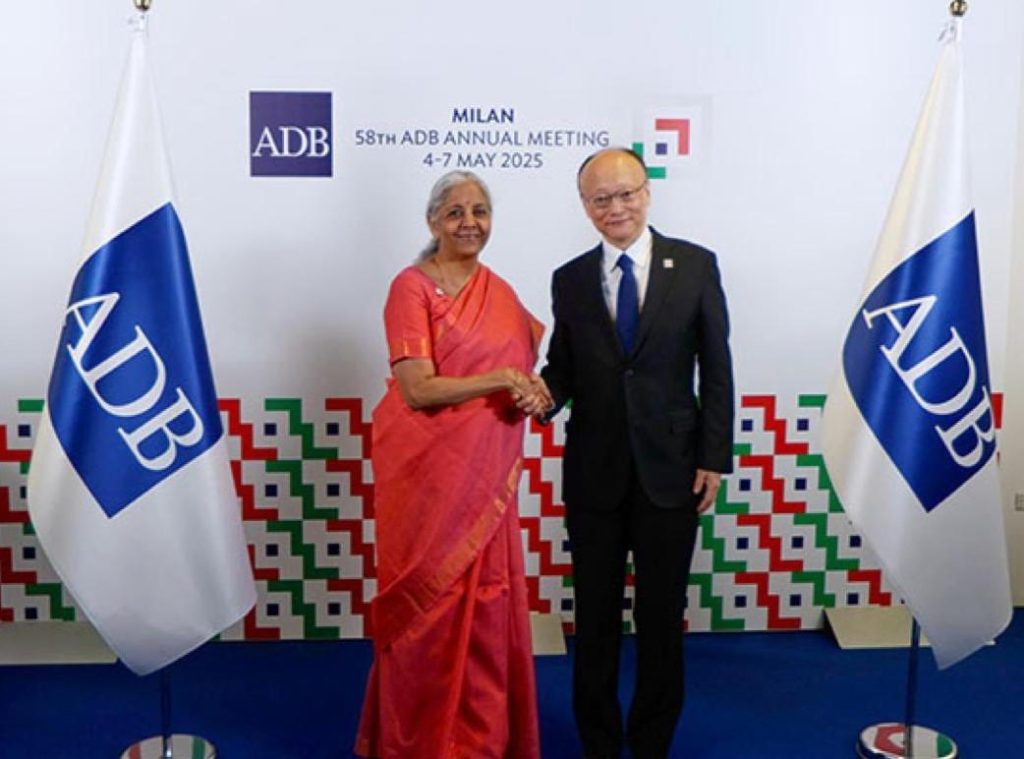
Title: Incorrect news: Govt on reports of Sitharaman asking Asian Development Bank to cut Pak funding
In the era of social media, fake news and misinformation have become a widespread concern. With the constant flow of information, it’s not uncommon for incorrect reports to spread like wildfire, causing confusion and panic among the masses. Recently, a similar incident occurred when reports emerged claiming that Finance Minister Nirmala Sitharaman met with the President of the Asian Development Bank (ADB), Masato Kanda, and requested a reduction in funds allocated to Pakistan.
The reports sparked a flurry of reactions on social media, with many calling for a cut in aid to Pakistan, citing various reasons such as the country’s alleged support to terrorism and its human rights record. However, it appears that the entire episode was based on incorrect information.
To set the record straight, the Ministry of Finance took to Twitter to clarify that the reports were false and had no basis in fact. The ministry shared screenshots of news articles, which claimed that Sitharaman had met with Kanda and sought a reduction in funds to Pakistan. Alongside the screenshots, the ministry wrote, “It is clarified this news is incorrect and has no basis in fact.”
The clarification from the Ministry of Finance has put an end to the speculation surrounding the matter. However, it’s essential to examine the consequences of spreading misinformation and the impact it can have on public perception and policy decisions.
The Asian Development Bank is a leading source of development financing in Asia, providing funds to its member countries for various development projects. The bank’s primary goal is to reduce poverty and improve the living standards of people in the region. Pakistan is one of the major beneficiaries of ADB’s funds, with the bank providing assistance for projects such as energy, transportation, and healthcare.
In recent years, Pakistan has faced significant challenges, including a severe economic crisis, terrorism, and political instability. The country has received significant assistance from the international community, including the Asian Development Bank, to address these challenges.
The reports of Sitharaman seeking a reduction in funds to Pakistan were likely based on misinformation and a lack of understanding of the Asian Development Bank’s role in the region. The ADB is an independent organization that works closely with its member countries to achieve its development goals. The bank’s funding decisions are guided by its strategic priorities and the needs of its member countries.
The consequences of spreading misinformation can be far-reaching and damaging. In this case, the false reports could have led to a backlash against Pakistan, potentially impacting the country’s relations with other nations and the international community. Moreover, the reports could have also undermined the credibility of the Asian Development Bank and its efforts to promote development in the region.
In today’s digital age, it’s crucial to verify information before sharing it. Fake news and misinformation can spread rapidly, causing harm to individuals, communities, and even nations. As citizens, it’s our responsibility to be vigilant and fact-check information before sharing it on social media.
The Ministry of Finance’s clarification on the matter is a welcome step towards setting the record straight. It’s essential for government agencies and institutions to take steps to prevent the spread of misinformation and to promote transparency and accountability.
In conclusion, the reports of Sitharaman seeking a reduction in funds to Pakistan were based on incorrect information and had no basis in fact. The Ministry of Finance’s clarification has put an end to the speculation surrounding the matter. It’s essential for us to be vigilant and fact-check information before sharing it, to prevent the spread of misinformation and promote transparency and accountability.
Source: https://x.com/FinMinIndia/status/1919397786866336004






